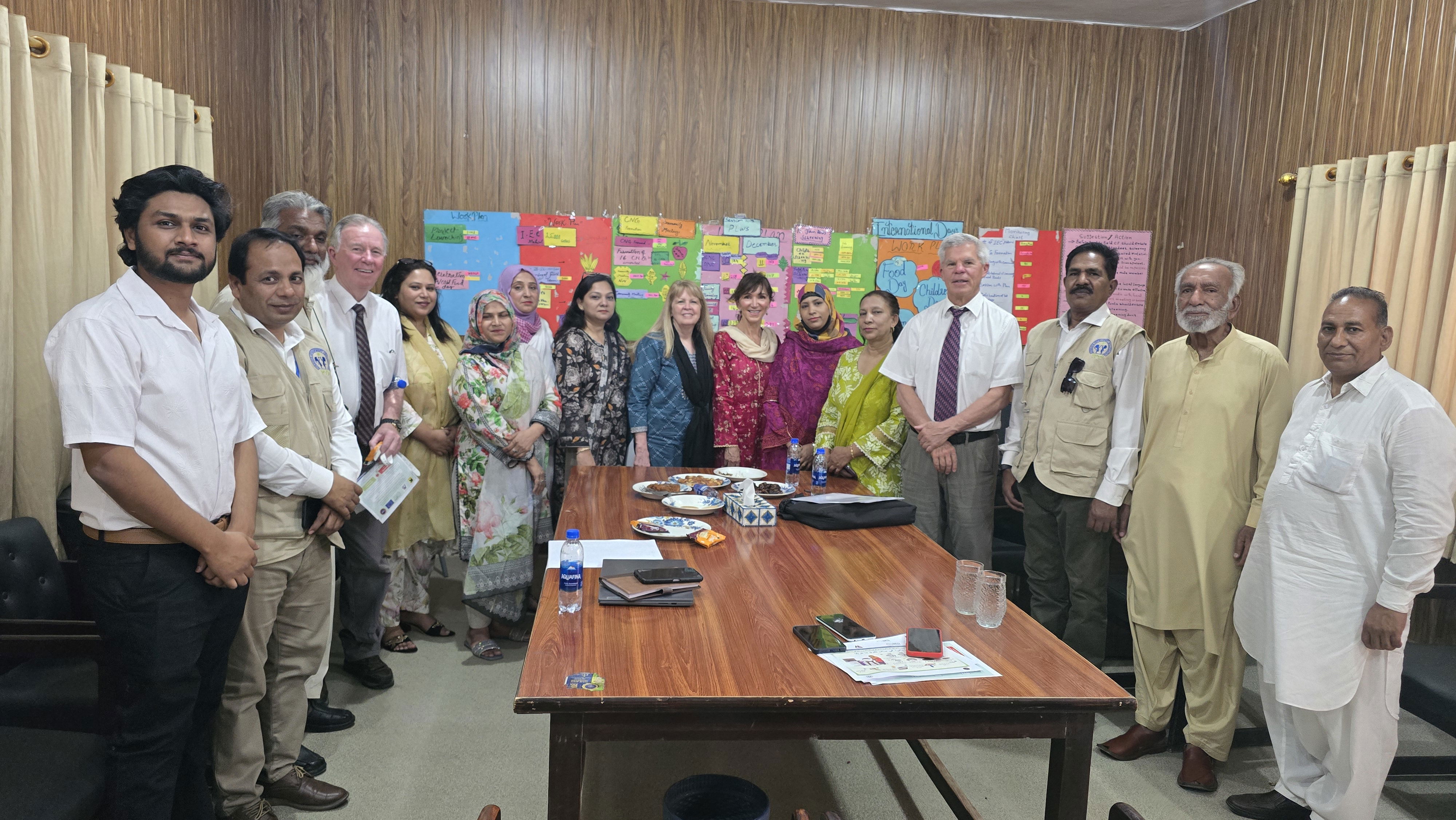Safe Drinking Water through Nadi Filters
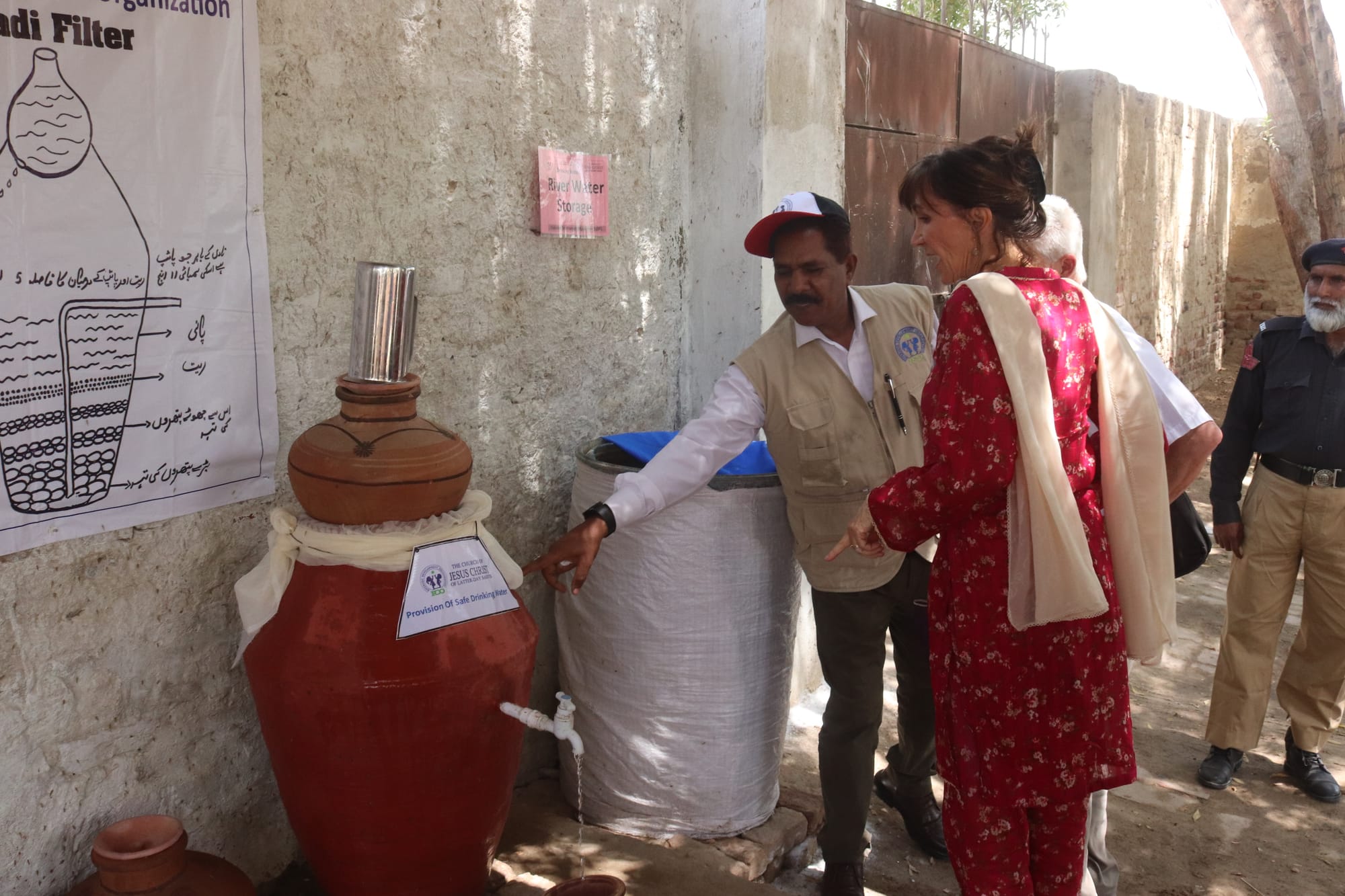
- Project Introduction
This project is a shining example of how simple, affordable technology combined with strong community participation can bring life-changing results. It is more than clean water it’s about health, dignity, and sustainability. From women managing household filters to schools and religious centers adopting them, the community itself is ensuring long-term impact. With growing demand across Sindh and beyond, the Nadi Filter movement is spreading hope, one household at a time. Riverside Development Organization (RDO), with support from The Church of Jesus Christ of Latter-Day Saints, is bringing safe drinking water to thousands of families in Sukkur, Sindh. Through the innovative yet simple Bio Sand “Nadi Filter”, over 20,000 people now enjoy clean, drinkable water right at home.
- Project Background
Access to safe drinking water is a basic human right, yet thousands of poor families in rural and semi-urban Sukkur struggle daily with unsafe, contaminated water. To address this urgent need, Riverside Development Organization (RDO), with funding support from The Church of Jesus Christ of Latter-Day Saints, launched the Provision of Safe Drinking Water through Bio Sand “Nadi Filters” project. The goal was simple but powerful: sustainably increase access to safe drinking water for marginalized communities in Sukkur, New Sukkur, and Rohri Talukas.
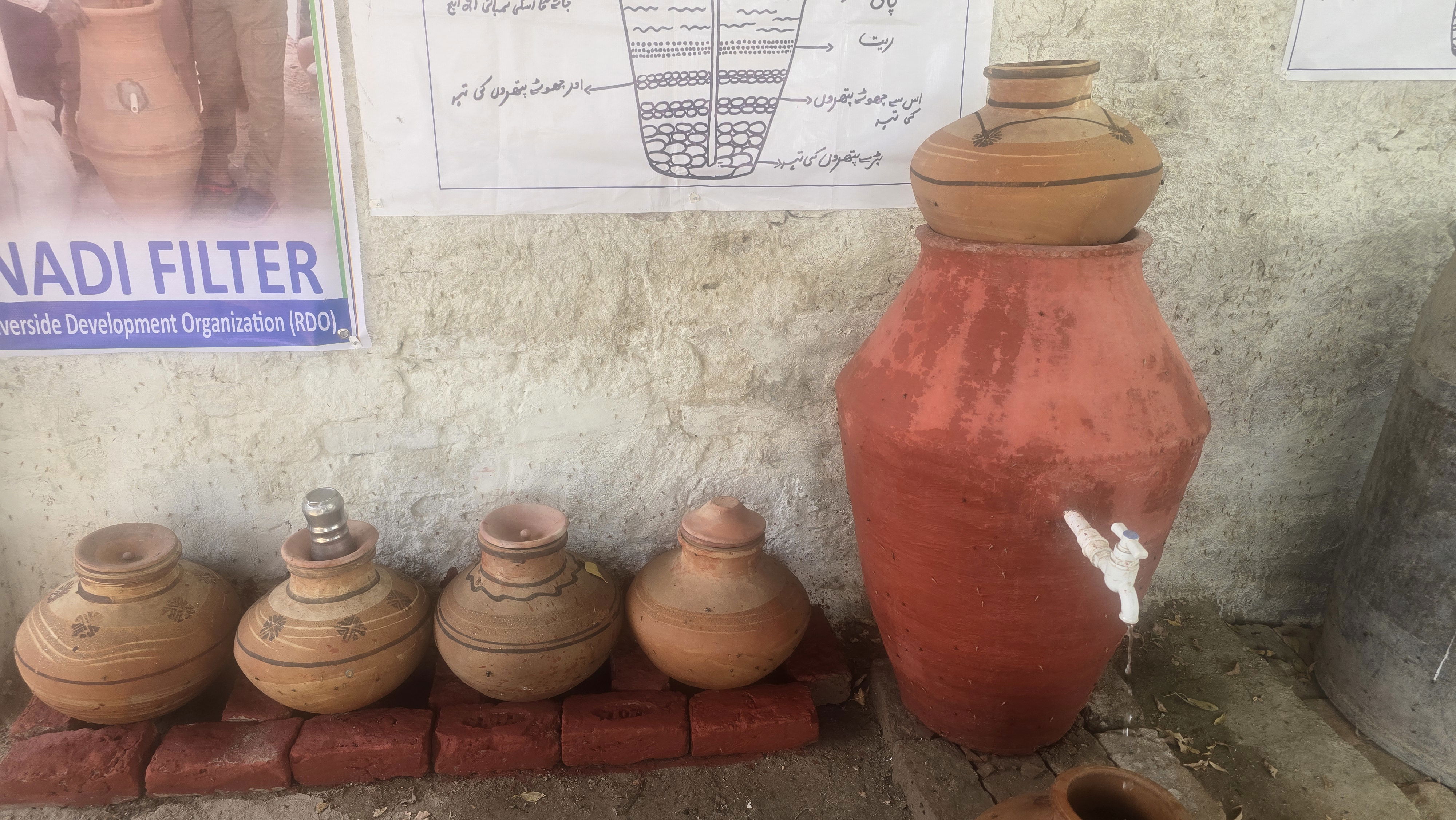
- What is a Nadi Filter 💧?
The Nadi Filter is a low-cost, simple, and highly effective water purification system made from local materials. When communities first saw it in action, they nicknamed it “Jadu Filter” (Magic Filter) because it turned visibly dirty river or canal water into clean, drinkable water.
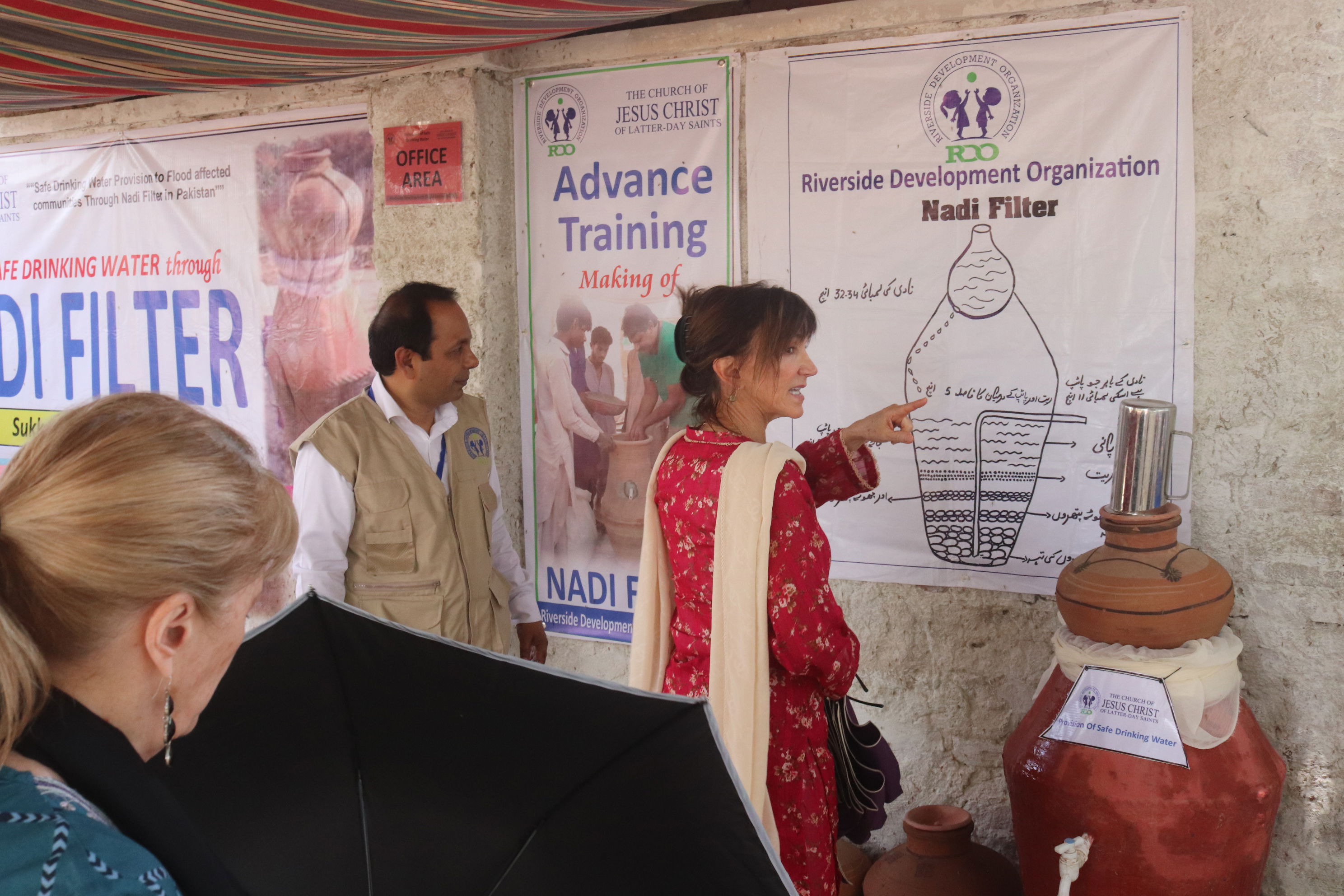
- Community Involvement
The project began with community mobilization and awareness sessions. At first, many households were reluctant but as soon as families saw clean water flowing from the filters, interest skyrocketed. Today, not only Sukkur communities but even families from Punjab have requested installation in their areas. Local water committees were formed with teachers, religious leaders, women, and youth to ensure ownership, fairness, and sustainability. Women played a vital role in managing and maintaining the filters, and in several areas, schools and places of worship also benefited.
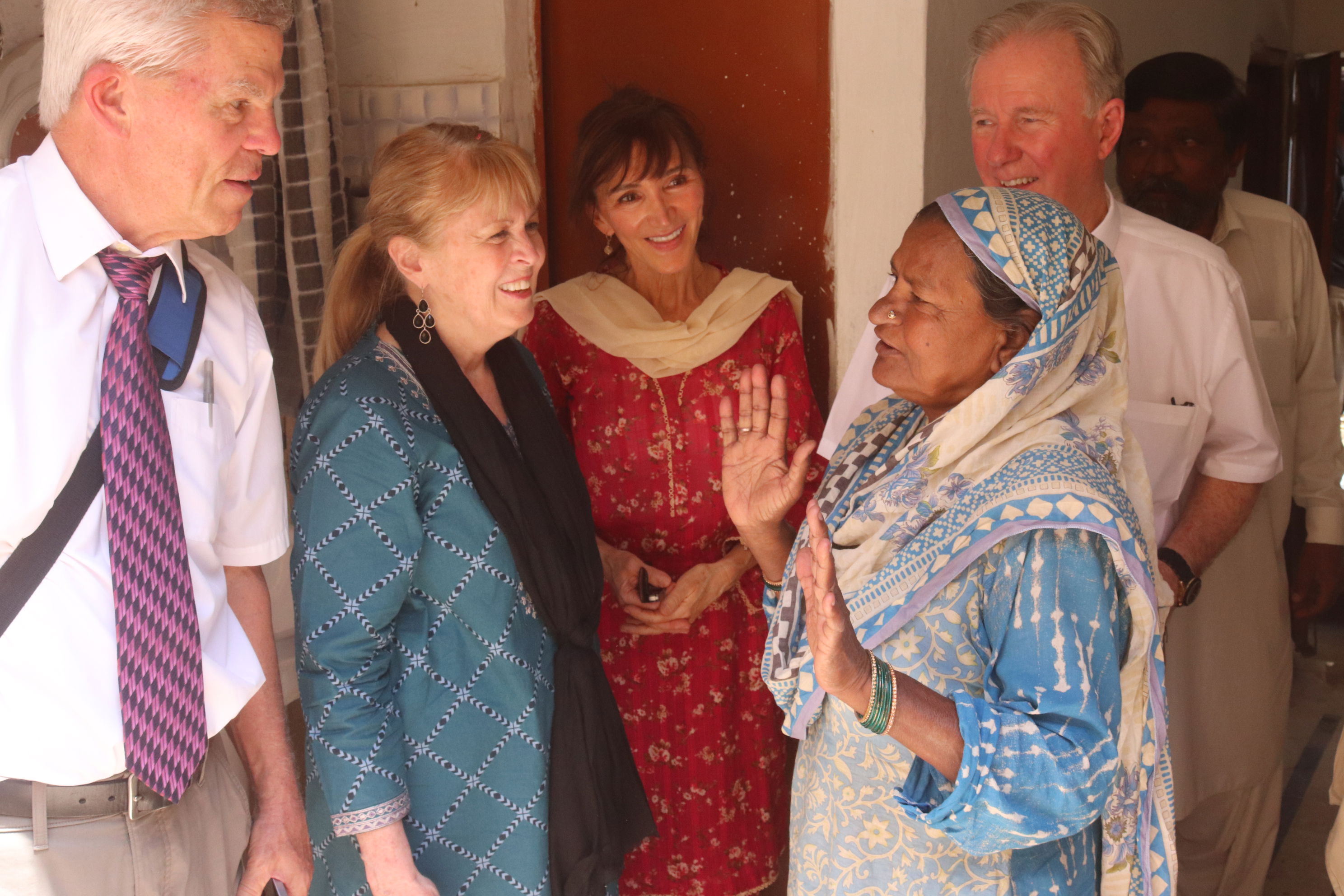
- Project Achievements
- 20,031 individuals reached (goal was 17,500)
- 2,862 households provided with Nadi Filters (planned 2,500)
- 62 areas covered(planned 20), including:
- 1 mosque
- 5 churches
- 4 educational institutions
- 312 trained water committee members managing filter sustainability
- 62 master trainers equipped to replicate and maintain filters
- 797 community members trained, with over 50% women participants
- Sustainability
- Families were trained to maintain their filters and shown where to buy replacement materials locally.
- RDO will continue support through its community schools and learning centers in Sukkur.
- Printed pictorial guides were provided to every household.
- Linkages established with local government labs and NGOs for ongoing water testing.
- Outcomes & Impact
- Families now enjoy safe, clean drinking water at home, reducing exposure to contaminated sources.
- Communities have adopted improved hygiene practices.
- The project fostered interfaith harmony, serving Muslims, Christians, and other groups together.
- A culture of planting fruit and shade trees has also emerged, adding nutritional and environmental benefits.
- Lessons Learned
- Involving women in installation increases ownership and long-term sustainability.
- Schools and religious centers are powerful hubs for community mobilization.
- Training local vendors and “master trainers” ensures faster, smoother replication.
Project Goal: Sustainable increase of access to safe drinking water for poor communities in Sindh, Pakistan. Specific Objective: Provision of safe drinking water to flood-affected and marginalized households through Nadi Filters in District Sukkur. RDO’s Commitment Riverside Development Organization (RDO) recognizes that access to safe drinking water, sanitation, and hygiene is central to public health, education, and poverty reduction. Over the next five years, RDO will expand its efforts in the WASH sector, building on proven community-driven models that are affordable, scalable, and sustainable. The recent Provision of Safe Drinking Water through Bio Sand “Nadi Filter” project demonstrated that low-cost, community-owned solutions can transform lives. What began as a pilot in Sukkur reached 20,031 individuals—exceeding targets by 15%—across 62 villages, schools, and religious centers. Families now enjoy safe drinking water, and communities have built local capacity for filter installation, maintenance, and advocacy.
